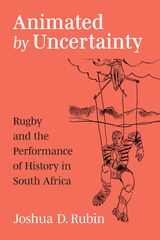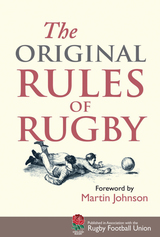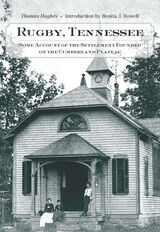
In Animated by Uncertainty, Joshua D. Rubin analyzes South African rugby through the lens of aesthetic politics. Building on 17 months of ethnographic research with rugby coaches, players, and administrators, the author argues that rugby is a form of performance and further that the qualities that define rugby shape the political ends to which the sport can be put. In this respect, Animated by Uncertainty demonstrates that theories of sporting politics cannot afford to overlook the qualities of the sports themselves, and it provides a theoretical approach to illustrate how these qualities can be studied. The book also analyzes the ways that apartheid and colonialism inhere in South African institutions and practices.Drawing inspiration from the observation that South Africans could always abandon rugby if they chose to do so, Rubin highlights how the continuing significance of rugby as a form of performance brings traces of South Africa's apartheid and colonial past into the country's contemporary political moment.

Rugby has rules, seriously? Believe it or not, it does. The Original Rules of Rugby brings together the original rules of the game drawn up at Rugby School in 1845 and the first rules of the Rugby Football Union in 1871. The book shows the complex evolution of rugby football and the intriguing history behind its shifting rules.

Hughes and many other "old boys" carried these values into their post-school lives in Victorian England. Thomas Hughes became an advocate for Britain's first labor unions and workingmen's colleges. He went on to serve in Parliament, and eventually planted his Christian Socialist ideals in the backwoods of Tennessee, where he established the utopian community named Rugby after his beloved alma mater.
In Rugby, Tennessee, Hughes describes the then-new community and his motivations in founding it. As Benita J. Howell points out in her lucid and informative new introduction, the book represents an important moment in late-Victorian English thought.
Hughes recounts the plight of England's "Will Wimbles," the underemployed second sons of the gentry, to whom he hoped to give a fresh start in Tennessee. Hughes also offers readers a vivid description of Tennessee's northern Cumberland Plateau, including natural landmarks that can still be seen. And his impressions of "Life in Tennessee," "The Natives," and "The Negro Natives" reveal much about the Upland South on the eve of industrialization. Written in part to convince British investors that their project in America was making great progress, Rugby, Tennessee, depicts a unique Utopian moment in this remote area of Appalachian Tennessee-a moment whose legacy is justly celebrated to this day.
Benita J. Howell is Professor of Anthropology Emerita at the University of
Tennessee. She is the author of Folklife along the Big South Fork of the
Cumberland River and is editor of Culture, Environment, and Conservation in the Appalachian South.
READERS
Browse our collection.
PUBLISHERS
See BiblioVault's publisher services.
STUDENT SERVICES
Files for college accessibility offices.
UChicago Accessibility Resources
home | accessibility | search | about | contact us
BiblioVault ® 2001 - 2024
The University of Chicago Press









